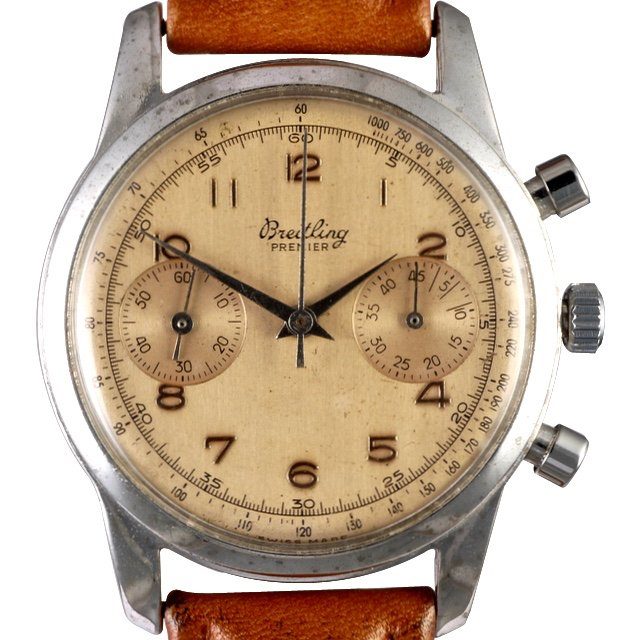
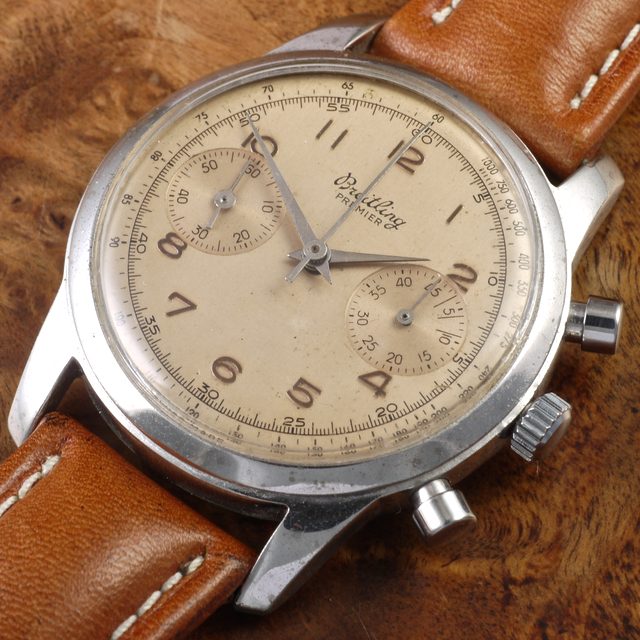
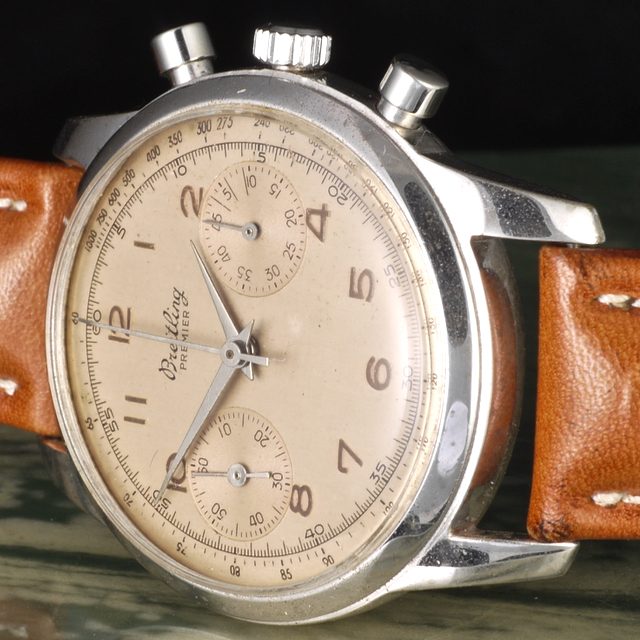
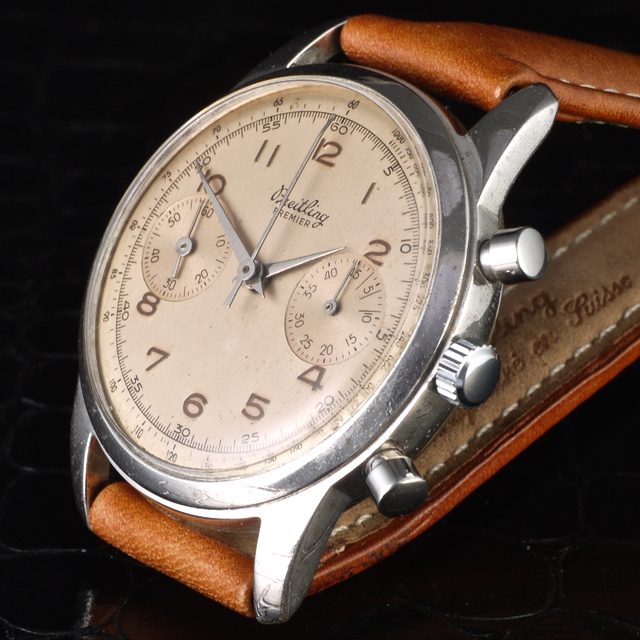
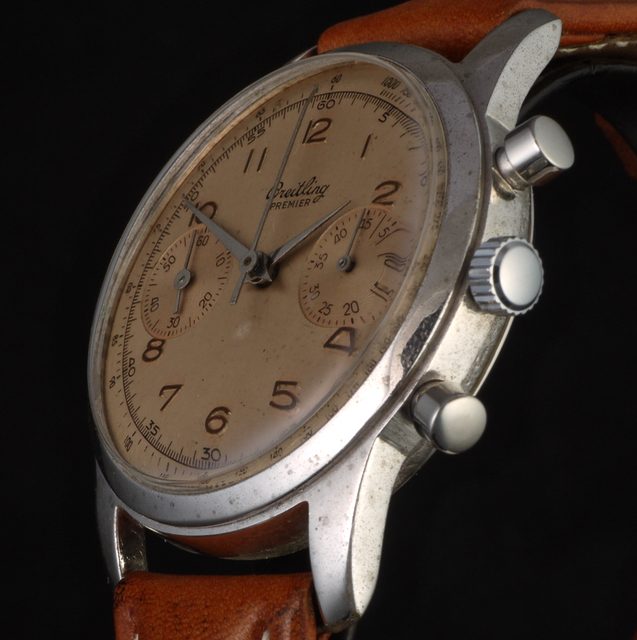
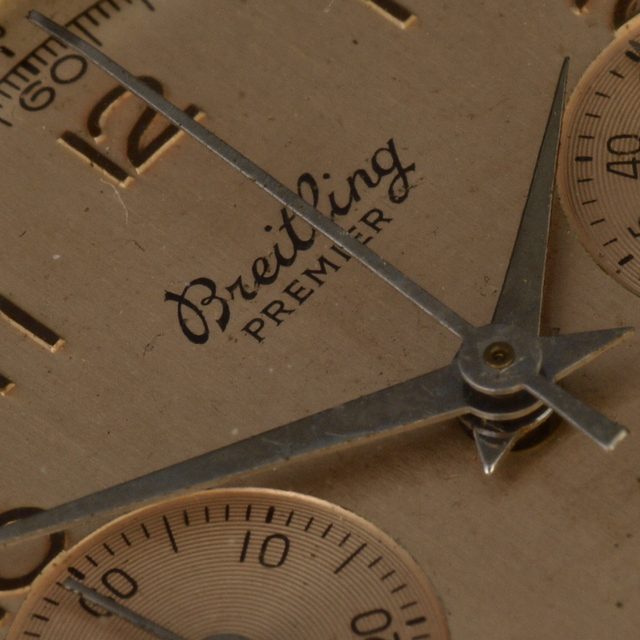
Breitling Premier
Nikita Khrushchev, First Secretary of USSR Communist Party, denounces Stalin's excesses1956 Breitling Premier 1191, 36.1mm. case, tachymeter scale. Manual winding cal. Valjoux 88.
The tachymeter scale of the Breitling Premier 1191 measures how fast an object is moving. Most tachymeters start at 400 and end at 60, but some models can show different numbers.
A Breitling Premier 1191 remains near the top of virtually every vintage watch collectors wish list.
Breitling first started manufacturing the Premier line of chronographs as early as the 1930s. With triple chronograph registers and blued hands they are almost dress watches.
Jerry Seinfeld, Graham Hill, Jim Clark, Miles Davis all wear (or wore) a vintage Breitling.
Breitling chosen as the official timepiece of AOPA, Aircraft Owners and Pilots Association. Something which Breitling has traded on ever since.
A 24-hour dial version, the Cosmonaute, was also produced in the early 60s.
The first generation Navitimer 806 came in the early 50s, they had Arabic numerals, black dials and sub-dials.
The second generation shows silver sub-dials and index instead of numbers.
Many early Navitimers didn’t have the Breitling logo, but the AOPA wing on the dial.
Some rare dials show the AOPA wings and the letter B instead of the Breitling logo.
Breitling has been a leading innovator in high quality stopwatches and chronographs and helped define how chronographs look and function until today.
Breitling launched the first wrist chronograph with a pusher at 2:00 in 1915.
Presented in 1933 as the first dual pusher wrist chronograph with pushers at 2:00 and 4:00 o’clock.
Breitling was one of the first manufacturers to recognize the need of early aviators for wrist watches incorporating such devices.
In 1942 Breitling introduced the Chronomat, the worlds first Smart Watch, a chronograph with a rotating logarithmic slide rule that allowed complex calculations with the turn of your fingers.
Throughout the 1930s to 50s, Breitling continued creating chronographs with different scales to suit different professions, such as tachometers for production engineers and drivers, and pulsometers for doctors.
